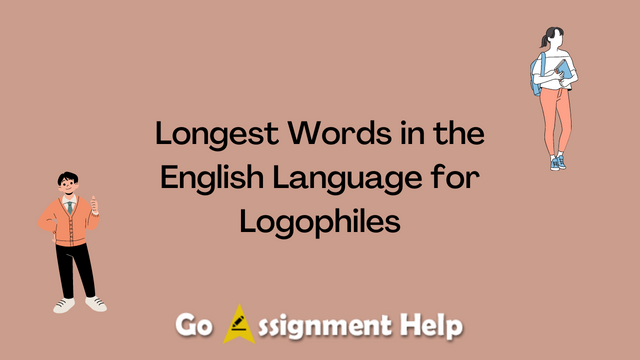Longest Words in the English Language for Logophiles
Sep 1,22
The longest words in the English language are quite a mouthful, and they’re sure to challenge even the most avid logophile. Here are ten of the longest words in the English language, according to the Oxford English Dictionary:
- Pneumonoultramicroscopicsilicovolcanoconiosis: It means an abnormal and persistent lung condition caused by the inhalation of very fine silica dust, often from volcanoes.” At 45 letters long, it is the longest word in the English language that appears in a major dictionary. It was first used by Everett M. Smith in a 1935 article published in the New England Journal of Medicine.
- Supercalifragilisticexpialidocious: This 34-letter word is used to describe something that is “extraordinarily good or wonderful.” This word was made popular by the children’s movie Mary Poppins!
- Pseudopseudohypoparathyroidism: It’s a disorder that results in the underproduction of parathyroid hormone, even though the parathyroids are structurally normal. It is 30 words long. It’s often used as an example of a “medical tongue twister.”
- Floccinaucinihilipilification: It means “the estimating of something as worthless.” It’s often used to describe the act of excessive criticism. The word is 29 letters long. It was first used in 1741 by British author William Shenstone.
- Antidisestablishmentarianism: It’s a political position that was popular in 19th-century England. It opposed the separation of the Church of England from the state. The word is 28 letters long. It was coined by British author Charles Dickens in his novel Bleak House.
- Honorificabilitudinitatibus: This word appears in Shakespeare’s play Love’s Labour’s Lost. It means “with honorableness,” and it is 27 letters long. This word was used for the first time in print by English printer Henry Denham in 1530.
- Thyroparathyroidectomized: It’s a medical term that describes the surgical removal of the thyroid and parathyroid glands. The word is 25 letters long. It was coined by American physician William Stewart Halsted in his 1907 publication, “The Surgery of the Thyroid Gland.”
- Dichlorodifluoromethane: It’s a fluorocarbon with the chemical formula CCl2F2. It’s used as a refrigerant and aerosol propellant. The word is 23 letters long. It was first used in print by German chemist Fritz Hoffmann in 1918.
As you must have noticed, the longest words in the English Language belong to the scientific discipline. This is not surprising as the need to communicate complex ideas and concepts often leads to the coining of new, long words.
The longest scientific term is the technical name for Titin, which is a giant protein found in muscle tissue. It is ‘Methionylthreonylthreonylglutaminylarginyl…isoleucine‘, and it has 189,819 letters! It was first used in print by German biochemist Klaus Gubernator in 1975. However, this word is not recognized by the Oxford English Dictionary.
Also Read : Alphabetical Systems
Have you ever wondered about the other longest words in the English Language?
The longest word in the Guinness Book of World Records is Lopadotemachoselachogaleokranioleipsanodrimhypotrimmatosilphioparaomelitokatakechymenokichlepsikossyphophattoperisteralektryonopteinolekymmenolakianopterygon. It is a scientific name for the ‘longest word in the Greek language’. It has 182 letters and was coined by Niko Soprano in 2006.
Other long words with more than 10 characters that you can use to impress your friends include:
- Hexakosioihexekontahexaphobia: Fear of the number 666 (27 letters)
- Tetrahydrofolate: A folic acid derivative that is important in the metabolism of nucleic acids and amino acids (20 letters)
- Pentazecillion: A number equal to 10 to the power of 45 (15 letters)
- Octocorallia: An order of cnidarians that includes corals with eight-fold symmetry (14 letters)
So there you have it, a list of some of the longest words in the English Language. Next time you want to impress your friends with your vocabulary, be sure to break out one of these doozies!
Also Read : Persuasive Speech





0 responses on "Longest Words in the English Language for Logophiles"